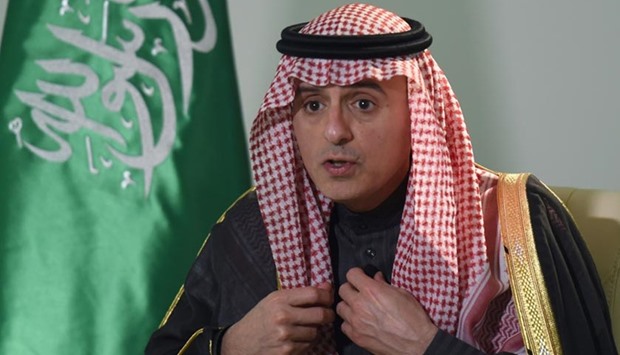Saudi Arabia is "not prepared" to cut oil production, its foreign minister said on Thursday, after the top exporter agreed with Russia to freeze output if major rivals follow.
"If other producers want to limit or agree to a freeze in terms of additional production that may have an impact on the market but Saudi Arabia is not prepared to cut production," Adel al-Jubeir told AFP.
"The oil issue will be determined by supply and demand and by market forces. The Kingdom of Saudi Arabia will protect its market share and we have said so," he said in an interview.
Saudi Arabia and other Opec producers have refused to reduce output in an attempt to drive less competitive players, in particular US shale oil producers, out of the market.
But in the first sign of Opec and non-cartel producers cooperating after prices fell around 70% since mid-2014, Saudi Arabia and Russia said on Tuesday they would freeze output if other major producers do the same.
Venezuela, Qatar and Kuwait also agreed on the planned freeze following talks in Doha.
Saudi Arabia's regional rival Iran surprised markets by saying that it too supported the move, sending prices soaring.
Although Tehran has not committed to any output curbs, its comments were seen as significant as it returns to world markets following the lifting of international sanctions.
Yemen intervention ‘will continue until government restored’
Saudi Arabia's military intervention in Yemen will continue until the country's legitimate government is fully restored to power, al-Jubeir said.
"It's a matter of time before the international coalition in Yemen succeeds in restoring the legitimate government... in control of all of Yemen's territory," he said.
"The support for the legitimate government will continue until the objectives are achieved or until an agreement is reached politically to achieve those objectives."
Saudi Arabia and a coalition of Arab allies launched air strikes against Iran-backed Shia Houthi rebels last March, after they seized control of large parts of Yemen and forced President Abedrabbo Mansour Hadi's government to flee the capital Sanaa.
The Houthis have been backed by forces loyal to ex-president Ali Abdullah Saleh.
Jubeir said the coalition had helped the government reclaim more than three-quarters of Yemeni territory, open up supply lines for aid and "put enough pressure on the Houthis and Saleh for them to seriously consider a political process."
He dismissed claims that Saudi Arabia was mired in the conflict.
"A very, very small part of our total military is involved in Yemen and it is not bogged down," he said.

